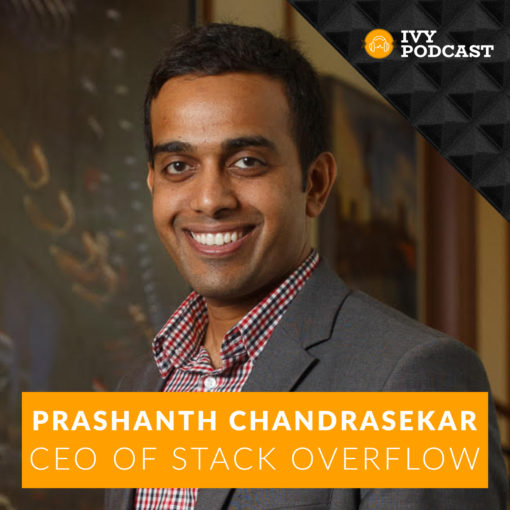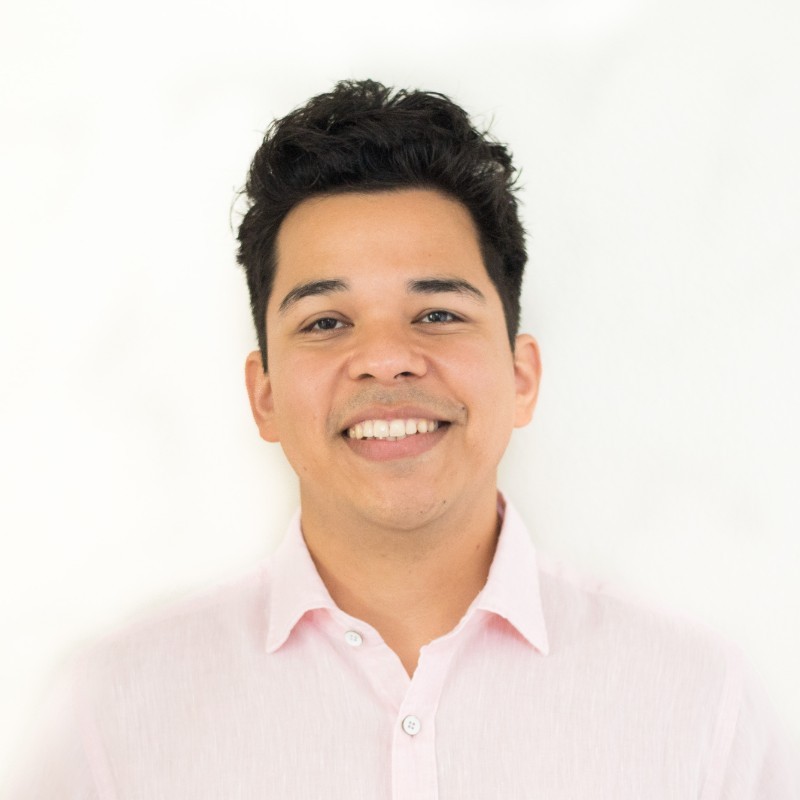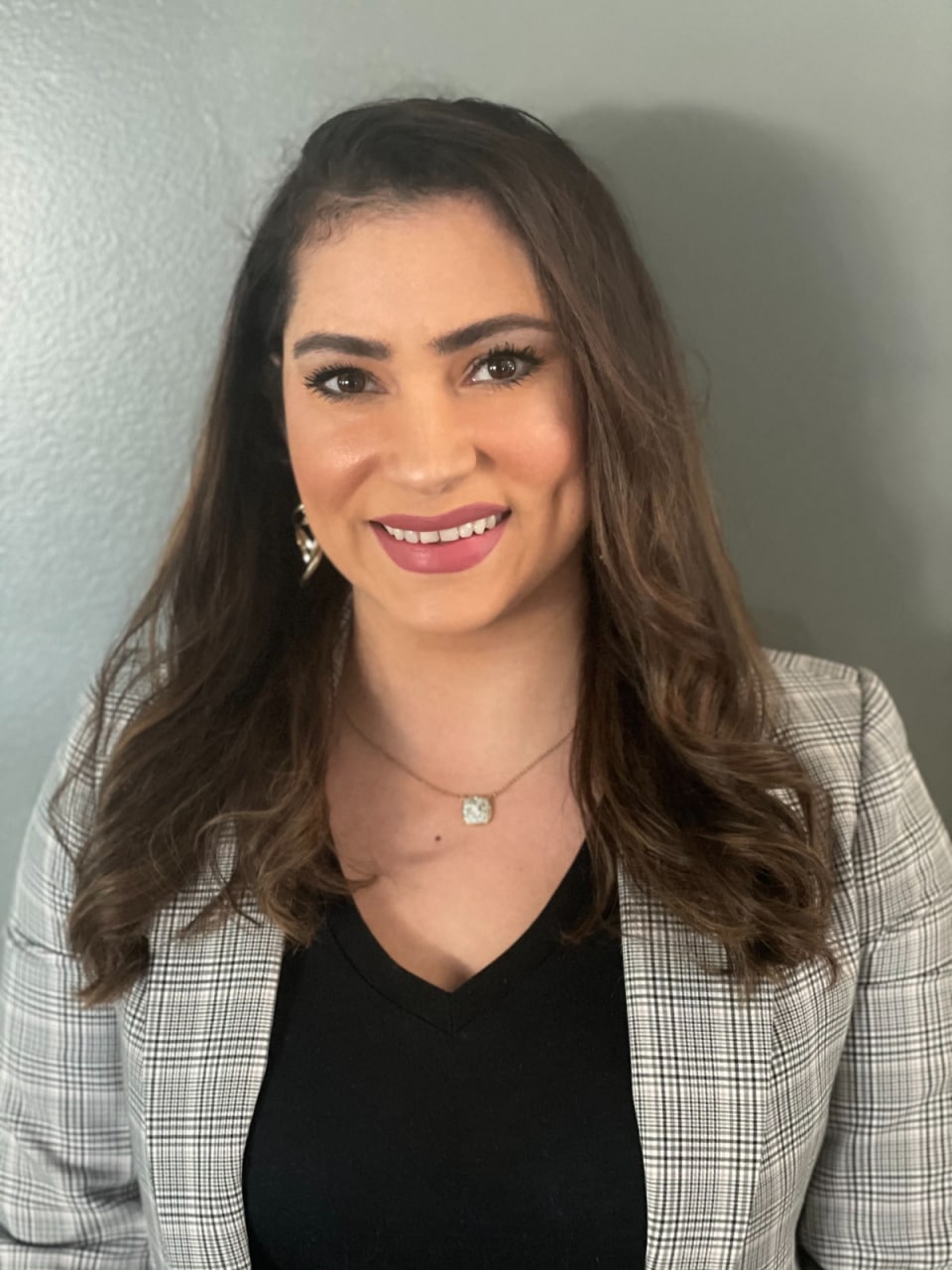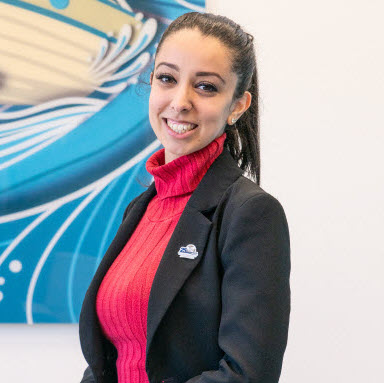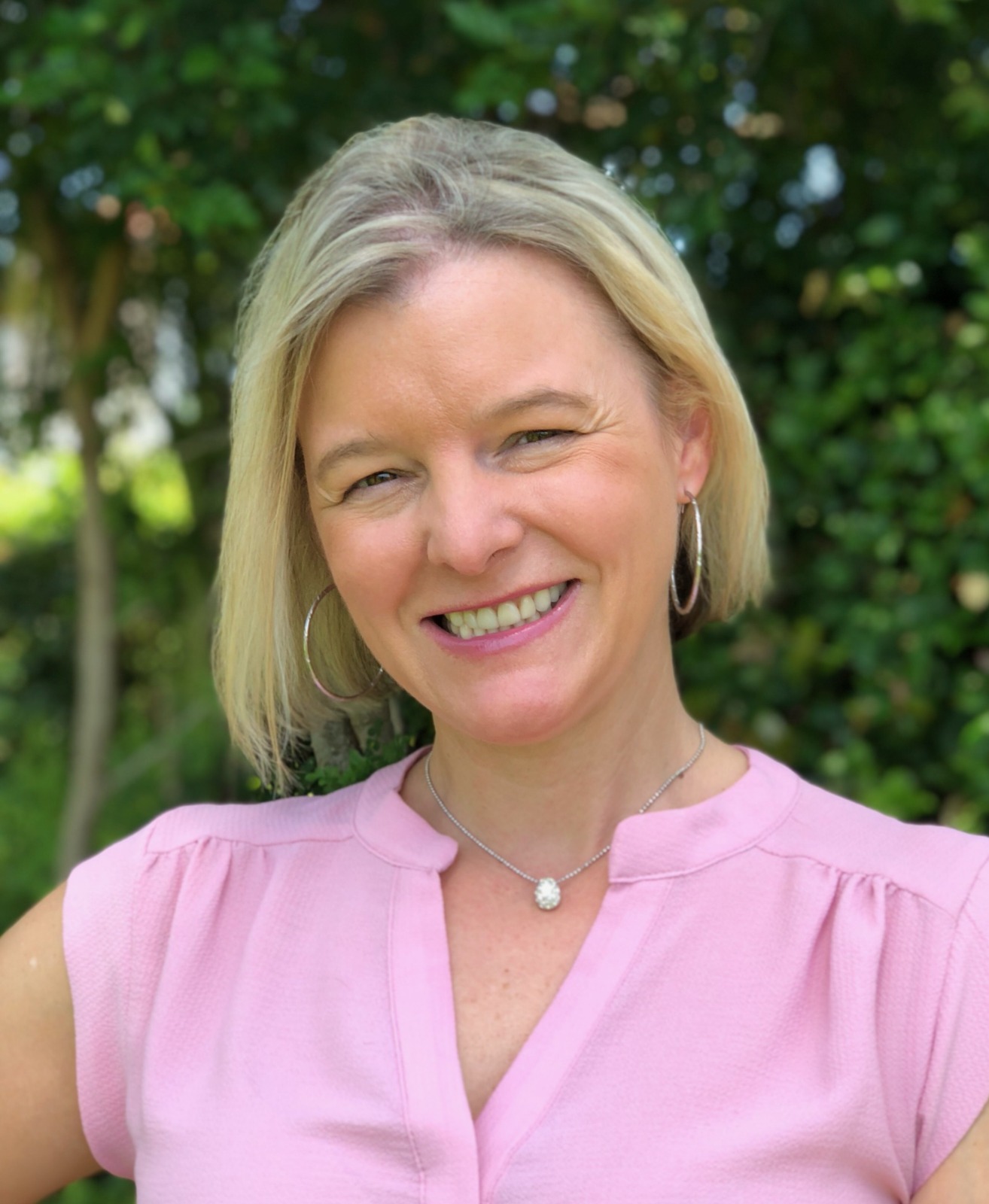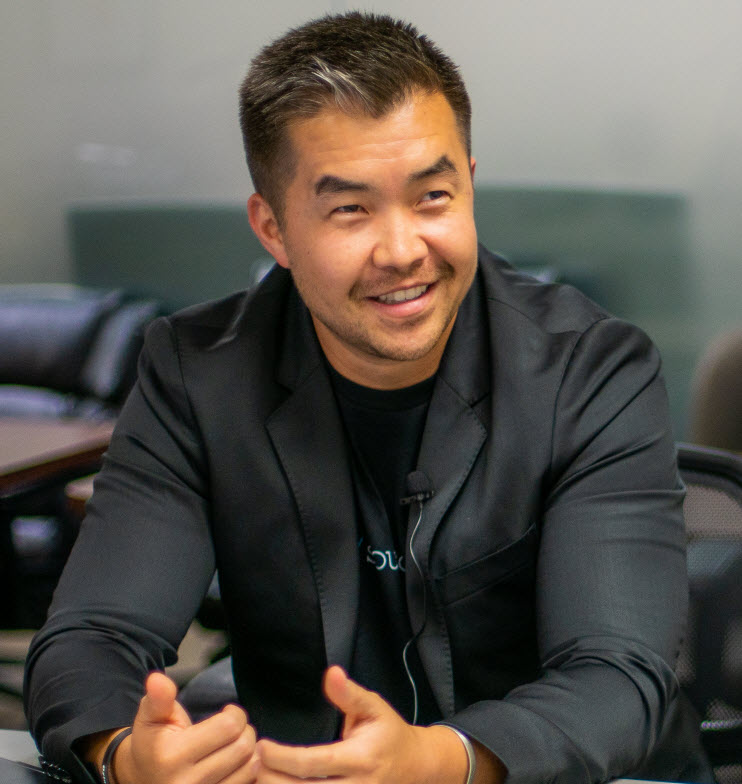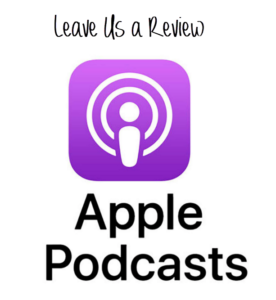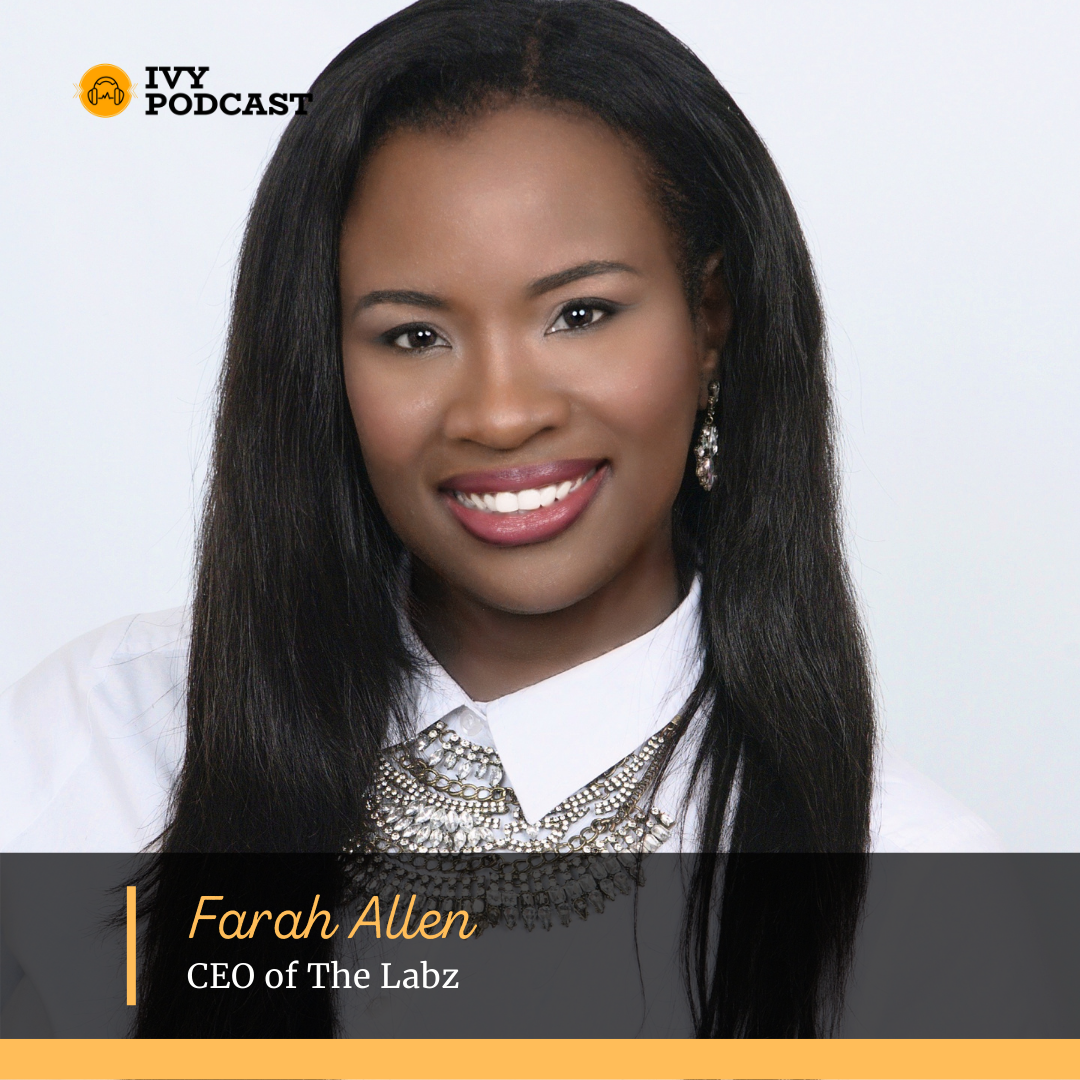
Farah Allen is an accomplished media technology leader with over 17 years of experience. Allen is currently the CEO & founder of ‘The Labz, The Labz is an interactive events platform that allows event organizers and content creators an entertainment-focused event solution that increases their RSVP rate and drives more revenue. Whether presenting films, theater productions, episodic and panel discussions, The Labz makes an exciting theatrical online experience. Farah’s previous executive positions include President and CEO of The Allen Group Management consulting Agency, where her clients included fortune 500 companies, and CEO and Cofounder of Song Society App. Farah has the honor of being the AJC Women of the Year for technology and is featured in publications such as Forbes and The Washington Post. The Labz also was named by Atlanta American Inno top startup to watch.
Episode transcription:
[00:00:00] Farah Allen: [00:00:00] Hi, my name is Farah Allen and I'm the founder of the Labs Fair. [00:00:19] Jahn Karsybaev: [00:00:19] Thanks so much for finding time to join us on the Abbey podcast. Can you tell us before we talk about your current company and your role as the CEO and founder of that, give us a thumbnail version of your career timeline. [00:00:33] Farah Allen: [00:00:33] Ah, thumbnail. Okay. I'll try. Well, my career started in architecture and construction. Yeah, silence is creative, but I was also some one whose parents wouldn't allow me to be an artist. So I became an architect. And through my time in architecture was great, but then I realized I couldn't be frank. I'd first start out making bathroom remodels, and I just didn't like that feeling. So technology was my next step in my career. Technology just opened up so many doors for me just to create what I wanted to. It's really fascinating to know that we can build anything via technology. I started a management consulting company and was very successful with that, but unfortunately I had to give all the products I created a way and I wanted to keep the products I wanted to build a company. I just had that strong desire and a lack of opportunity as a woman and trying to quickly expand my career and she had negative roles. This didn't seem like the opportunities were there for me. So I made my own opportunity and started the labs. [00:01:47] Jahn Karsybaev: [00:01:47] I love what you just said. I decided to create my own opportunity. That's a very powerful statement in a way that I also operate in that way that I'm a creator first. I'm a builder first. And if there is, at the end of the day, it's not about knocking on the doors, just almost building your own door. So that definitely resonates, which leads me to that further point. Tell us a little bit about what you have built. What are you currently working on? [00:02:14] Farah Allen: [00:02:14] Yeah. So I have built a way for creators to express selves online. So that's via collaboration. Having very visual collaborative tools, which ultimately right now, the tools that are collaborative are made by engineers that may not be in the creative industry because they're giving you black and white and gray. You use designs where creatives are so involved in the world. And so I'm visual. That those options weren't available. So I created options that were more visual, more customizable to how people like to create content, create music, share videos, all those things. We've built into the labs, but because of COVID. We made a shift in focus because we, sorry, users and film and theater and in music, wanted to present in the way that we've created our technology, which was very visual, very creative minded and focused, but they didn't have Technology out. They were platforms that gave them options to express themselves and present, present their content. So we took our same ideas behind the lives and put them into an event. Presentation tool that allows you to fully customize experiences that fit your brand, fit your line of thinking and your creativity. So that's something new that we've done and it's been really successful. So far we're glad we made it. And even as the world is opening up and things are more hybrid. We find that most businesses are continuing their online presence because they went from local to international overnight. And you can't go back, which is great for us because we are there to support you daily. Experienced creative needs. [00:04:10] Jahn Karsybaev: [00:04:10] That's exciting. And definitely makes sense. Especially in this current market with everyone being virtual, everyone trying to collaborate together in very dispersed environments. I'm pretty sure, there's a lot of demand for service, like the labs. Is that something that you aspire to create or was that the nature of you pivoting and adjusting to the current market? [00:04:32] Farah Allen: [00:04:32] It was always the focus. The focus was always, how do we put, create, how do we have people own at work? And it grew from. Hey, I'm going to help you as a musician. Who's creating music with someone else. The content that you're making and make sure that ethnically, you have knowledge as to who wrote what and when, and that's important for your profession and went from that to where it is now, but the, [00:05:00] the mission is still the same. We're still having you as a creator on how you present, how you work, how you collaborate with people. [00:05:12] Jahn Karsybaev: [00:05:12] Oh, that's pretty exciting. And how long have you been building your company? [00:05:17] Farah Allen: [00:05:17] We started in 2018. [00:05:19] Jahn Karsybaev: [00:05:19] Okay. And tell us a little bit about that initial phase, the very first portion of your journey, because usually that's the hardest and they know they, there's a lot of decisions to be made, whether you bootstrap and build it yourself, or you go the venture route where you raise and Angel Investments, the reason I ask is because that's my passion. That's where I operate in venture capital space. And as an angel investor, And for me, it's always exciting to hear these very early stages, the napkin stage for the founders in a way, what were some of the decisions that you had to make and what did you learn from that? [00:05:59] Farah Allen: [00:05:59] Yeah. Well, I'll tell you it's still hard. It's just a different level of hardness. [00:06:05] Jahn Karsybaev: [00:06:05] Yeah, exactly. [00:06:05] Farah Allen: [00:06:05] It never gets easy. Right? The stakes are just higher at the top. And the top seems like it never ends. So in the beginning it was quite difficult. Of course, I'm African-American woman and all of these numbers are just moving against you. But when you're starting, you can't think about that. Obviously, it exists, but you have to push through it. So I didn't know how to operate a startup. I knew how to operate a management consulting business. Totally know how to create products. But when I got into the startup phase, there was a special thing that I felt like I was missing. And I couldn't find that formula that makes me mark Zuckerberg and I'm looking. And it was very hard to find resources. When I started out I started looking in with this idea of 2017. So I found R Jordan has an organization called ATDC. I found them, they supported startups by giving them classes and learning about how to do customer discovery, all the beginning phases of building the idea, making sure that the MVP is there. Didn't quite get it. Everything I needed from that because I was still required to know something before I even got there. And I didn't even know what I was starting to know, but I wasn't getting that help that I personally needed. Then there was an organization I heard about called digital undivided and they spoke to me. They literally spoke to me. They said, if you're a black or a Latina entrepreneur, then you want you, we want to help you build your company. And so I tried twice and I got in the second time and expense almost a year, working with me on learning the ins and outs of building a business and was very personalized and created a huge network across the United States with people that they know. So once I left there I went into an accelerator, Comcast set an accelerator for it, and I even grew from there. This is where I became really serious. Like this is for real, everyone's kind of. I have backing that has social proof, my family, the two people that did have money invested. So it was my first like $10,000 that came in because they realized that maybe she's onto something. And we understand that this type of organization is backing. And starting to build, never really enough money to build what the idea was. But I trickled in and was very creative as to how I got what I needed to prove that we are an investable company. And eventually after a year of course there, the reality is it is hard to be that American one. Like, I can't afford that though. I can ignore it. It doesn't ignore me. So I have to become even better at what I do and do less with more, with do more with less. And then eventually, I proved out undeniably that this wasn't an investable company to someone and I got my first $200,000 in quiet capital with quakes money. It was like the first time I had just enough to like to build more quickly and faster. And get more people and make more deals. And the future just slipped a lot grinder. I never felt that sense of, Hey, I got some more support here, but at the end of the day, I'm building something that normally takes like $3 million to start off with an investment of, at that time, 250 kids, when I invested that invested capital from, and luckily we were able to do something with that. We were able to get customers, they were able to combat, again, they're insects that you do need capital to scale. It's just unavoidable, no matter what you do you do need it unless you are doing something extra special and your strategies like your product and strategy is just unique in that way. Those are the people you hear about in the newspaper. They're not normal people. So, at some point I needed to raise again. And luckily I met Abigail Disney and Adrian Bakker who owned a theater. Well, a media company called level four and they do invest in minorities and women. And in media and entertainment, they invested a million dollars in our company last year. And because of that, I was able to get to the next level. It's like the second about these levels. It progresses. And as I always ease their level, because now I see why people raise three, four, $5 million, because I can't hire the necessary folks to handle all the influx of new customers with that again. Just from beginning to be the, where we are now, I'm just realizing, and I'm maturing as a CEO, a founder. Someone that does see a huge multi billion dollar opportunity and sees how people actually do get there. I'm just getting that knowledge or that insight into that space because I'm here. I have some capital to deploy. I do have backing from people that can bring in more opportunity and more investors. But we're still, it's always that upward lifting. I wouldn't say struggle, but there are strategies and things that you have to do in order to do it. He knew it. And that's where we are right now. [00:11:54] Jahn Karsybaev: [00:11:54] Yeah, that's very interesting because as I worked with a lot of startup founders and myself as an operator and founder of multiple companies, I understand some of the challenges that you went through initially, and you probably still dealing with that, whether making those decisions fundraising or not, but at the end of the day, it's, it could be very distracting. Exercise, because it's almost a full-time job. When you go in through the fundraising route as you go through dealing with investors via, we'll also try to build your company. So that's always that balance, so that every founder has to deal with someone recently categorizing us founders as these kinds of folks with a permanent anxiety disorder. With the focus on productivity that we're just walking around with just permanent anxiety, just trying to be productive. So I thought that was, that was pretty cool. So what are some of the trends and ideas that really excite you these days, as not only as the CEO and founder of your own company, but what are you researching work kind of bets? Are you making, what do you see as the next big thing in the next few years? [00:13:06] Farah Allen: [00:13:06] Yeah, I am. So I would just, in golf, in new, because COVID happened and of course we're going back into a state, but it's not the same state and he just left, so I see new things that weren't. Like popping before that is popping now because folks are now more used to technology and being on the computer. I see go-to market strategies have changed because of the COVID and they're not going back to normal. So I see all these new opportunities used for people to reinvent. Social norms. And I see that in a bed space. That's why we are focused, double down on focusing on growing that side of our technology, because we're at the cutting edge of the future. It's also compared to what. E-commerce did for physical retail, right? Because of the Shopify of the world. Now people are doing dual things, they're shopping and they're going online. They're probably doing both at the same counter Martin the same day. And I see that for a lot of things that are now socially. Okay, because folks have stayed at home for the whole year and they have no anxiety about doing that anymore. So I'm excited about events. I'm excited about online experiences that kind of replicate marketing techniques of how to keep people engaged with your marketing advertisement. If you want to sell products or you want to do online Shopping. That's really, that's a growing space. And I see China really taking the lead with kind of the home shopping network experiences online. And we're doing that as well. So I'm interested in that space. That's the space I really love right now. Yeah. [00:15:01] [00:15:00] Jahn Karsybaev: [00:15:01] Yeah, definitely would love to pick your brain around that because we organize a lot of events. We facilitate a lot of the executive round tables and things like that with our networks. And it's always interesting in looking for ways to make that experience a lot more organic and natural. And it's very challenging, especially in the virtual setting. So definitely I'm going to, again, to try to pick your brain a little bit around that as a CEO and founder of your own company, surrounding yourself with like-minded people and just eight players is I'm sure at the top of your mind 24/7, whether you are recruiting actively or not, I've been there. I am there. I live in a breathe that shares with us any of the strategies that really help you. Bring like-minded folks bring the top talent to your teams. How do you succeed in that space? What's maybe you have learned through some of the activities that you went through. Talk a little bit more about that. [00:16:05] Farah Allen: [00:16:05] I'd say I'm an expert in that yet and in the beginning phases of growing your startup, the resources are a lot, right? You have people that can really help you grow. From the state, the early stage. But when you get into the later stages, it's really hard to find those folks. Of course, you got to have capital payment, no one's at that stage is working for them, their value and your company may or may not be that valuable for the coming one. But the equity that, you kind of dumb dangle in front of folks in the. The beginning stages. So now, we reached a stage where the resources that we started with, aren't the resources that we're going into the future with. So now I'm finding what exactly I need for scale and growth for folks to help me with strategy because another thing you realize is that you, as a founder, can't do everything anymore. You can't be the smartest person in the room and you can't hold all the knowledge and expect to succeed to the levels that whatever your brain is telling you're going. So I'm finding people right now. It's me really networking within my cohort of founders and seeing it owes and seeing who has left something similar or who's ready to go, or who came from corporate and did a really good job that I can give a bigger position to, or more opportunity for leadership that matches their needs. There needs to be your needs and seeing where that can go. And I smell everybody there. They may not even be looking for a job that might be an opportunity that I'm looking for. So I'm really involved. And that process right now is we're raising our next round and making sure that we have those people on board to get us to that next level. So no answers, but a good strategy. That's what I have for you. Right? [00:18:00] [00:17:59] Jahn Karsybaev: [00:17:59] Right, right. Absolutely. And that makes sense. But in the current market with everyone being virtual, a lot of companies and people thought that, oh, great. I'm going to get this tremendous. Access to candidates and skillset all over the world, but they overlooked the aspect of the competition. Now, every other company is out there for the same talent and they probably have a lot more to offer. So the candidate will kind of think that employee retention becomes even more important in that aspect because everyone's hunting. Everyone is after the top talent. What's working for you or maybe not. When it comes to your employee retention, what are some of the things that you do that really help you keep your core team around you? [00:18:43] Farah Allen: [00:18:43] Well, we are growing our team. Honestly, it's been a lot of me and our technology or our team of developers. It's really a nice team we've, I've worked with them for the duration of this and they're great.And they believe in the mission, they are creatives yourselves, or have Loved ones that they want to say that they'd create a technology to support their livelihoods. So our development team, which is great, I think for us is where we are right now. We need it because of our slight pivot or our growth in the event space, it's more customer oriented. That means our business team has to scale out. It can't just be me answering emails, one-on-one customer engagement that's new. There are more projects, there's a vantage point there's production. So we are adjusting the mix of growing that side of the team. We're very small. So we aren't. So how do we retain these folks? Well, they're mission-oriented too. They come from media and entertainment. They see the value of what we're doing and Laura. So they see an opportunity to grow with a company and quickly take on leadership roles if they put themselves out there and kind of come up with ideas and how we can scale in our strategy. [00:20:11] Jahn Karsybaev: [00:20:11] Right, right. Absolutely. I think that's very important, especially at the very beginning. When you, as a CEO, said that strategy and getting people that buy into that it's so far, most important, especially at the very early stage like this because that will push them to work harder, work more and be kind to that self-sufficient team. So I like that analogy. As far as the future of work. Where do you see the king of the industry in general shifting towards two, or do you think we will stay as, is a lot of companies shifting to kind of hybrid modes, whether you're working with. Partially virtually partially in the offices. How are you preparing for that? [00:20:55] Farah Allen: [00:20:55] I believe at least the next five years are actually why five, but it seems like normal social norms and things changed within five-year increments. As for my research, people are still at home. I remember working in corporate America. It was always thought that you don't do as much as home. Like people are getting away with stuff at home. And now we see that people are doing way more at home than they do in the office. Because they're home and they don't have all that social distraction, which could be good in some certain areas and not in others. So I don't think this is going away. I think office buildings are going to have a challenge because they have to fill those spaces. But there are environments where you need to be in there. I think those folks would figure out strategies in order to give people the freedom that working at home provides you even if they don't necessarily have to be at home. So I think we're in the wild west of seeing where founders really come to light and shine and create these opportunities. That's why I was like, I love this time because everyone has a chance and opportunity to start something new and solve problems that we didn't have a year, 18 months ago. So I don't think hybrid or virtual is going away. I think it's just gonna grow and it's going to grow per section and per industry need. And it's going to get more niche in regards to seeing this next flow of. Kind of like CRM tools that are for her industry. So I'm looking forward to it. [00:22:42] Jahn Karsybaev: [00:22:42] Yeah, for sure. And definitely going to help the labs grow as well. Right. It's a lot of people to collaborate virtually, so it's kind of, it should be a win-win. Enclosure, I'd like to talk a little bit about your personal resources or content diet. What do you consume on a daily basis when it comes to learning, getting better at self-improvement? Share with us any resources that are useful to you on a daily basis. [00:23:11] Farah Allen: [00:23:11] So I love when people recommend books, especially smart folks that I know are doing really awesome things. I want to know what they focus their time and their brain power on. So I tend to get book recommendations. I read the scam, the news for four things in events, things in SAS technology I followed music, technology news just things that pertain to my industry and looking for trends or looking for new ideas as well. New people, new players, new parts, and potential partners. Or competitors. So I think I have set the algorithms just to know what I'm looking for everyday, because it just shows up on my news feed outside of that. I have tointentionally go to read because I am busy as a founder, but I do realize that if I don't, I miss out on key things that could Could help with my strategy could help me not do that particular strategy because someone else kind of proved it wrong or right. And in some way. So I don't do as much reading as I want to, but when I do it is because it's recommended or it's some industry thing that I need to know in order to do my business. [00:24:31] Jahn Karsybaev: [00:24:31] Well, you couldn't have set me up any better for my last question I wanted to ask is what's the book, are you currently reading? And what if it's different from that one? Which one do you always recommend to others? And why is that? [00:24:44] Farah Allen: [00:24:44] Well, instead of a buck I consistently listen to Start Up Therapy. Which is a podcast by startup.com and it is important, I stress, mental health for founders because it's not easy what we do. And we're all consistently doing things that normal folks stay away from because it's painful or it's just. You don't want to be rejected. what customers talking, trying to complain, you don't want all this stuff, but we are consistently being put in Dallas positions or putting ourselves in those positions. So mental health and it's important. I think why I listened to this podcast is because there are people out there that go through the very same thing you do and understand that. That is something not as unique as you think you're able to see past it, go past it, solve it. The stress level goes down. So that's how my real life surfaced? And so I'm a part of that organization. [00:25:53] Jahn Karsybaev: [00:25:53] Yeah, absolutely. And for our listeners, we'll make these recommendations available in episode notes and lead me to the last point that you've mentioned: mental health and all of that great stuff. It makes sense. And a lot of. Sometimes, at least from my perspective in the startups or companies that I invest in, I view the founders almost as professional athletes, because you have to take into account everything when it comes to their lifestyle, the diet, the mental fitness, all of that great stuff. And my analogy is that. Founders have to be treated exactly the same way as the professional athletes are at the end of the day. It's, they're leading the company 24/7, so, and that's just kind of my take into that and I'll leave kind of that conversation, that fire up. Thank you so much for your insights today. We're definitely going to stay in touch and do another episode in about a year. See how much has changed and how you guys are dominating your industry. [00:26:48] Farah Allen: [00:26:48] Thank you so much for having me in you're on my top podcast list, and I'm just looking forward to this episode and all the episodes moving forward. [00:26:57] Jahn Karsybaev: [00:26:57] I appreciate that. Thanks so much.
Welcome to Ivy Podcast! On this Executive Leadership Podcast we interview top executives from Fortune 500 with a focus on strategy, innovation, negotiation and everything about leadership.
Our Podcast for Executives features Thought Leaders who share practical insights for effective leadership, continuous innovation and strategy execution.
Ivy Podcast is a rapidly growing Executive Podcast, which covers topics like Hiring and Retention Strategies, Talent Acquisition, Innovation, Digital Transformation and much more.
On this Leadership Podcast, you will find conversations with the most accomplished executives from Fortune 100 companies. We aim to cover a broad range of industries and create a learning platform for the most ambitious and high potential professionals who are looking to learn from the most accomplished Executives on this Business Leadership Podcast.



